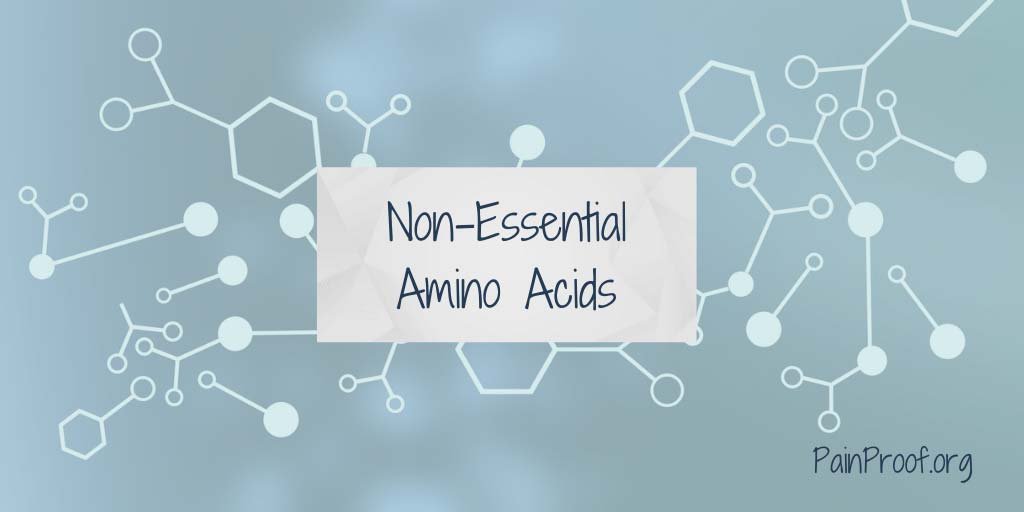You might be familiar with the word amino acids, but the extent to which they keep us functioning is really awe-inspiring. Do you supplement your daily diet with amino acids?
You might be familiar with the word amino acids, but the extent to which they keep us functioning is really awe-inspiring.
Do you supplement your daily diet with amino acids? Chances are those are the essential amino acids or BCAAs (branched-chain amino acids). Do you know the difference between BCAAs and EAAs and who should use which?
However, it’s those lesser known non-essential amino acids that need a little bit of recognition. These are the amino acids – building blocks – that our body is able to manufacture on its own. We still need to feed our body nutrient-dense whole food, get quality sleep, and manage stress adequately. Without those factors in place, like when we are under chronic stress, contract an illness or suffer from an injury, we need to support our body for a period of time.
The nonessential amino acids are:
-
Alanine*
-
Arginine*
-
Asparagine
-
Aspartate
-
Cysteine**
-
Glutamate
-
Glutamine
-
Glycine**
-
Proline
-
Serine**
-
Tyrosine***
*Synthesized (made) within the liver cells in the urea cycle.
**Synthesized from glycolytic intermediates (products produced in the middle stages of metabolism)
***Synthesized from the amino acid phenylalanine (the full role of phenylalanine is not currently understood)
Science-y stuff
Every amino acid is build on the backbone of carbon (just like your spine). From there, each amino acid adds a unique combination of hydrogen, oxygen, and nitrogen. How those molecules are arranged define a particular amino acid. Non-essential amino acids are primarily made from glucose, except for tyrosine. There’s a caveat – any excess non-essential amino acids that are broken down, but not used are eventually stored as fat. It’s similar to calories: If you don’t use it: you store it. All amino acids are building blocks for other molecules and their respective functions. Some have multiple roles like changing the acidity (or alkalinity) of solutions, storage of nitrogen, help with electron transfer, or helping create bonds for more complicated structures/molecules. Genetic defects can occur if an amino acid is missing during the formative stages of development.
Roles of Nonessential Amino Acid
Each amino acid has a job to perform in our body like cellular growth and repair, immune function, red blood cell function, hormone function, maintenance, or enzymatic reactions. Some of the non-essential amino acids are conditional amino acids. Those include: arginine, cysteine, glutamine, tyrosine, glycine, ornithine, proline, and serine. “Conditional” means when the body is under extended stress, dealing with an illness, or not eating enough protein, your body may not be able to produce enough of these. One of the most common non-essential amino acids that needs support is glutamine. This may be due to the excess stress the liver undergoes during stress, illness, and a poor diet.
What do they do? (NOT an exhaustive list)
-
Alanine – breaks down tryptophan and B6
-
Arginine – precursor for synthesis of other amino acids, instrumental in growth and development
-
Asparagine – helps with protein modification, building neurotransmitters, and helps break down toxic ammonia in cells
-
Aspartate – helps with hormone production/release and nervous system function
-
Cysteine – found in beta-keratin (in hair, skin, nails). It’s important for making collagen.
-
Glutamate – keeps your brain functioning properly; needs to be present in the right amounts at the right times.
-
Glutamine – helps make glucose. Instrumental in gut health and immune function. Produced in the liver.
-
Glycine – precursor to other metabolites; Acts as a neurotransmitter; helps with antioxidant activity, anti-inflammatory processes, is cryoprotective (helps our body with cold temps), assists with immunity in nervous tissues and peripheral tissues.
-
Proline – helps with metabolism, wound healing, anti-oxidant reactions, immunity and helps make protein.
-
Serine – precursor to other amino acids; helps with brain health
-
Tyrosine – essential to the production of neurotransmitters (especially epinephrine, norepinephrine, and dopamine); helps produce melanin
Takeaway:
The focus of supplementation is usually on the essential amino acids, but there are times in our lives that supplementing the non-essential amino acids is beneficial as well. We don’t need to intentionally focus on nonessential amino acids in our daily diet because our body can make them, however we do need to eat nutrient-dense whole foods. During periods of stress, illness, or injury adding more of the conditional amino acids may help speed up recovery.
Tip:
BCAAs are better suited for those who are meeting their daily protein goals. EAAs are better suited for those who do not reach their protein goals. EAAs are not an excuse to limit your animal protein.
As always, please DO NOT add any supplements into your diet without the supervision of a knowledgable healthcare practitioner. You can cause more damage than good. Eat adequate animal protein FIRST!
References:
Arginine – metabolism and functions in the human organism
Multifarious Beneficial Effect of Nonessential Amino Acid, Glycine: A Review
Proline and hydroxyproline metabolism: implications for animal and human nutrition


Comments